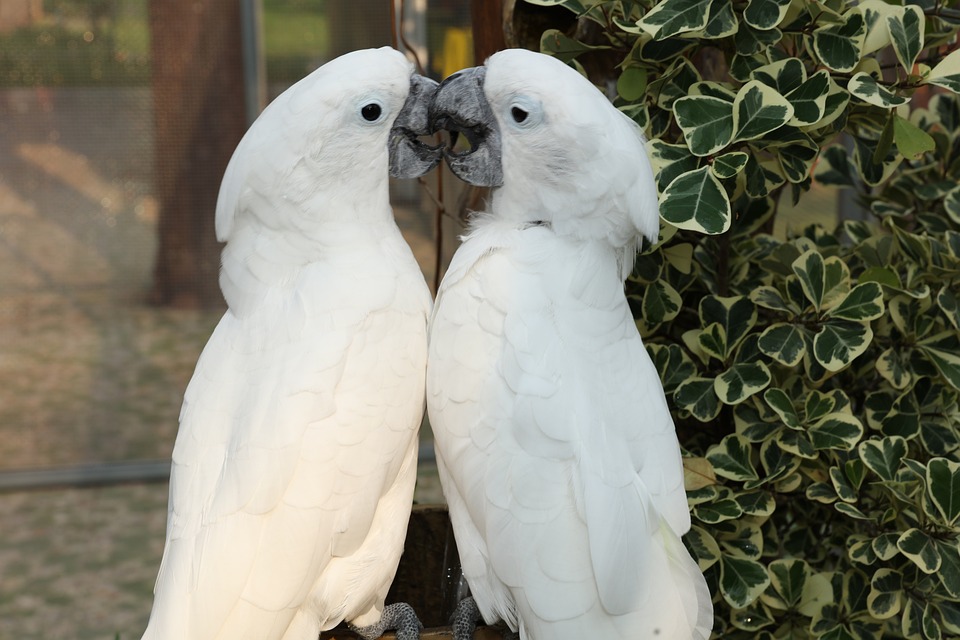Parrot training can be a rewarding experience for both you and your feathered friend. However, it’s not uncommon for parrots to become frustrated during the training process, which can hinder their progress. To ensure successful training sessions, it’s important to understand the reasons behind their frustration and how to address them effectively. In this article, we will explore some valuable tips and techniques to discourage parrots from getting frustrated during training.
Understanding Parrot Frustration
Parrots are highly intelligent creatures with unique personalities. Like humans, they can experience frustration when they face challenges or fail to understand what is expected of them. Recognizing signs of frustration in your parrot is crucial to prevent it from escalating and affecting the training process. Common signs of frustration in parrots include:
1. Feather plucking or self-mutilation
2. Vocalizations of distress, such as screaming or screeching
3. Aggressive behavior, like biting or lunging
4. Refusing to engage in training activities
5. Destructive behavior, such as biting cage bars or chewing on furniture
Tips to Discourage Parrot Frustration during Training
1. Start with Basic Training: Parrots, especially beginners, should be introduced to simple and achievable training tasks. Starting with basic commands like “step up” or “target training” provides them with a sense of accomplishment, boosting their confidence and minimizing frustration.
2. Keep Sessions Short and Frequent: Parrots have limited attention spans, so it’s important to keep training sessions short and engaging. Regular, frequent sessions of 10-15 minutes are more effective than long, exhausting sessions. This approach ensures that your parrot doesn’t become overwhelmed or frustrated.
3. Use Positive Reinforcement: Positive reinforcement is a key aspect of parrot training. Reward your parrot with treats, praise, or their favorite toy whenever they exhibit the desired behavior. This positive association motivates them to continue learning without getting frustrated.
4. Avoid Punishment and Negative Reinforcements: Punishing your parrot can lead to fear, stress, and increased frustration. Instead, focus on redirecting undesirable behaviors and reinforcing positive ones. By ignoring unwanted behaviors and rewarding desired ones, you create a more conducive learning environment.
5. Be Patient and Consistent: Patience is crucial when training parrots. Remember that they learn at their own pace, and each parrot is unique. Consistency in your training approach and cues ensures clarity for your parrot, reducing confusion and frustration.
6. Introduce Variety and Enrichment: Parrots are highly curious and intelligent creatures. Incorporating a variety of toys, puzzles, and environmental enrichment in their training routine can help keep them engaged and motivated. This prevents boredom and frustration from creeping in.
7. Observe Body Language: Being attuned to your parrot’s body language is vital to gauging their emotional state during training. If you notice signs of frustration, such as raised feathers or dilated pupils, take a break and reassess your training strategy.
Frequently Asked Questions (FAQs)
Q: My parrot seems to lose interest quickly during training. What can I do to keep them engaged?
A: Parrots have short attention spans, so keeping training sessions short and frequent is essential. Additionally, incorporating a variety of training activities, using positive reinforcement, and introducing new toys or challenges can help maintain their interest and motivation.
Q: My parrot gets frustrated when they don’t understand a command. How should I handle this?
A: Be patient and avoid getting frustrated yourself. Break down complex commands into smaller steps, and reward incremental progress. Use clear cues and repeat the command consistently. If necessary, take a step back and reinforce previously learned commands before moving forward.
Q: How can I prevent my parrot from becoming aggressive during training?
A: Aggression can be a sign of frustration or stress. It’s important to identify the triggers that lead to aggression and address them accordingly. Avoid punishment, as it can escalate aggression. Instead, redirect their behavior, introduce positive reinforcement, and consult a professional trainer if the aggression persists.
In conclusion, training parrots requires patience, understanding, and a holistic approach. By recognizing signs of frustration, adapting training methods, and providing a positive and enriching environment, you can effectively discourage frustration and create a productive training experience for your parrot. Remember, each parrot is unique, so adapting techniques to suit their individual needs is crucial for successful training and a harmonious bond between you and your feathered companion.









